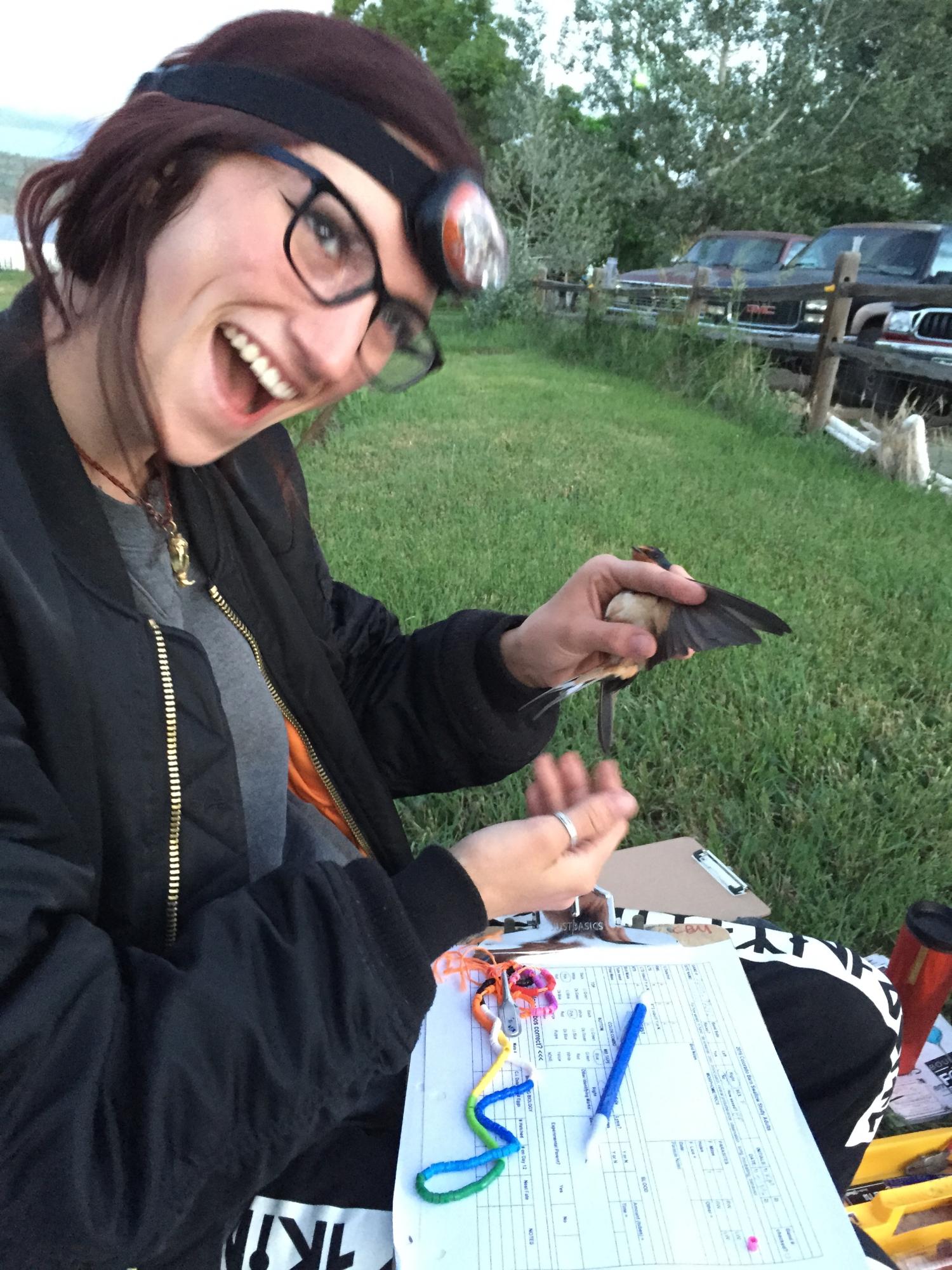The Mitey Barn Swallows & The Omegga Egg - Kelley McCahill
After researching the Safran lab upon my arrival to CU, I became fascinated by their barn swallow research on sexual selection and hybridization. In fact, seeing the short video of their summer work on the EBIO webpage was what originally drew me towards CU Boulder.
When I first started off in the lab, I worked for a year doing white blood cell counts, DNA extractions and isotope analysis before being offered a REU field position for the summer of 2016. With Rebecca Safran and Amanda Hund’s guidance, I decided to use the data collected over the summer for my honors thesis. I am investigating how barn swallow parents modify their behavior during the incubation period in the presence of blood-feeding mites in the nest. To measure incubation behavior, we deployed thermocouples disguised as barn swallow eggs into our experimental nests. These thermocouple eggs, called ‘Omega Eggs,' take temperature readings every minute, which allow us to observe incubation behavior.
My decision to carry out an honors thesis has been both the most challenging and rewarding experience I have gained during my undergrad career. Someday, I hope my findings will help fuel future research in the lab on how ectoparasites influence adult barn swallow coloration as means for sexual selection.



